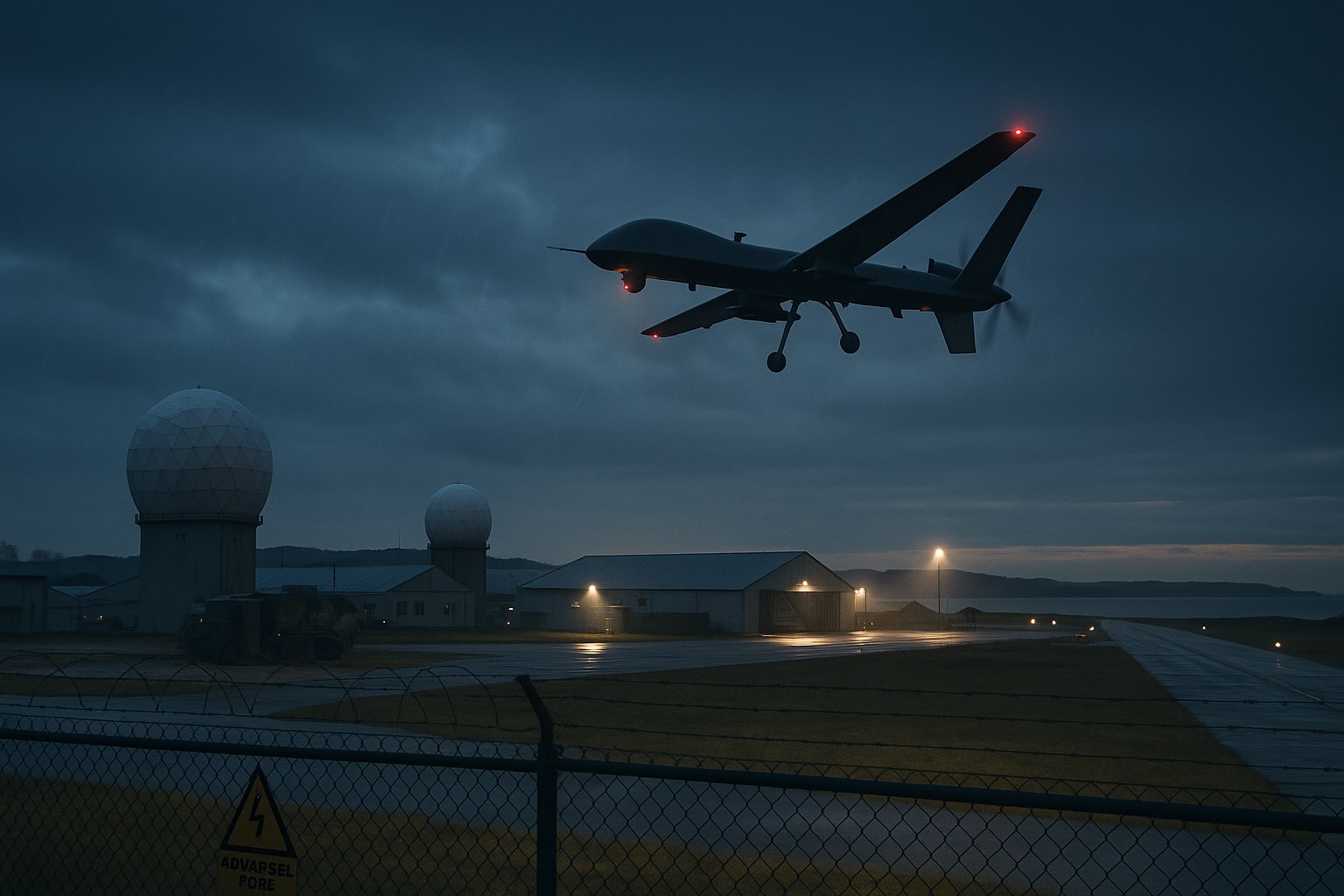Authorities confirmed overnight observations at several defence sites after earlier incidents that had temporarily halted traffic at Copenhagen and other airports. Police reports have included activity near Karup Air Base, while Norway has investigated possible sightings close to its Ørland air force base, indicating a broader regional pattern.
The timing is sensitive. European leaders are due in Copenhagen next week for an EU gathering, after defence ministers agreed to press ahead with a “drone wall” concept to improve detection and interception along the EU’s eastern borders. Denmark has accepted Swedish military anti-drone support for the summit.
Public statements from Copenhagen have been firm on the need to respond, while remaining cautious on attribution. Foreign Minister Lars Løkke Rasmussen said Denmark had no plans to invoke NATO’s Article 4 and that the government was “not in the situation today” to assign responsibility. Prime Minister Mette Frederiksen has described the activity as a hybrid attack, and Danish justice officials have signalled plans to propose legislation allowing certain infrastructure owners to neutralise hostile drones.
NATO states in the region are adjusting posture. The alliance has announced additional assets for the Baltic Sea area following the Danish incidents, while European defence ministers have discussed layered measures to counter unmanned systems. Separately, public authorities across Denmark have received hundreds of alerts, some unconfirmed, reflecting heightened sensitivity after repeated airport disruptions.
Sweden has offered to lend Denmark anti-drone capabilities on a shared basis for the period around the summit. The Danish Ministry of Defence said the offer was accepted. The move follows a week in which airports and military locations recorded multiple drone-related shut-downs or restrictions.
Germany is reviewing its rules to enable faster action against hazardous drones, including potential authorisation for the military to shoot down suspicious unmanned aircraft where necessary. Debate has centred on amending aviation security law and clarifying roles between police and armed forces in airspace incidents.
The pattern of activity sits against other recent air incidents involving Russia and NATO members. Estonia reported that three Russian MiG-31 fighters violated its airspace for about 12 minutes; Moscow denied the allegation. The episode is being treated in allied discussions as another test of response thresholds.
Drones circle 4 more Danish airports as Kremlin accused of targeting NATO airfields
Post Views: 984
